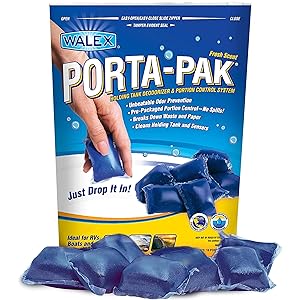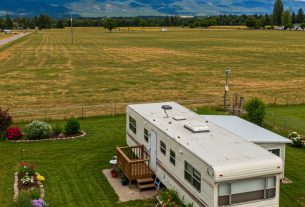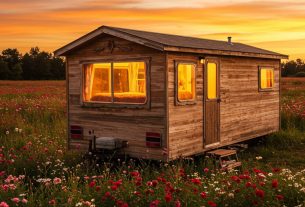When I first considered the idea of purchasing a manufactured home, I found myself overwhelmed by the plethora of information available online. As someone who values both financial stability and a cozy living environment, I needed to dig deep into the pros and cons of this housing option. After extensive research, personal reflection, and conversations with others in my community, I am excited to share my insights. If you’re contemplating whether a manufactured home is right for you, let’s dive into the details together.
Understanding Manufactured Homes
Manufactured homes, often referred to as mobile homes, are built in factories and transported to their final locations. Unlike traditional homes, which are constructed on-site, these homes are assembled in a controlled environment, leading to a variety of benefits and challenges. Understanding what exactly a manufactured home is can help you make a more informed decision.
Key Characteristics of Manufactured Homes
- Built in compliance with HUD Code
- Transportable and can be set up in various locations
- Available in various sizes and styles
- Typically more affordable than site-built homes
Manufactured homes are designed to be efficient and cost-effective, offering a housing solution that appeals to many different demographics. But are they worth the investment? Let’s explore the advantages and disadvantages together.
The Pros of Manufactured Homes
In my journey to understand manufactured homes, I discovered several compelling benefits that attracted me to this housing option. Here are the key advantages:
1. Affordability
One of the most significant draws for me was the cost-effectiveness of manufactured homes. According to the U.S. Census Bureau, the average price of a manufactured home is significantly lower than that of a traditional site-built home, often about 50% less. This affordability can open doors for first-time buyers or those looking to downsize without sacrificing comfort.
2. Quick Construction and Setup
Another appealing factor is the speed of construction. While traditional homes can take months to build, manufactured homes can often be completed in a matter of weeks. This rapid turnaround allowed me to consider moving into my new space sooner than I had anticipated.
3. Energy Efficiency
Manufactured homes are often built with energy efficiency in mind. Many come equipped with modern insulation, energy-efficient windows, and appliances. This can lead to significant savings on utility bills over time. According to a report from the U.S. Department of Energy, these homes can be up to 25% more efficient than traditional homes.
4. Customization Options
When I began exploring manufactured homes, I was pleasantly surprised by the customization options available. Many manufacturers offer a range of floor plans, finishes, and upgrades, allowing buyers to create a home that reflects their personal style and needs.
5. Community Living
Many manufactured home parks foster a sense of community, which I found appealing. Living among neighbors who share similar lifestyles can create a supportive environment, making it easier to forge friendships and connections.
The Cons of Manufactured Homes
While there are numerous advantages, it’s crucial to consider the potential downsides of manufactured homes. Here are the main challenges I encountered in my research:
1. Depreciation
Unlike traditional homes, which typically appreciate in value, manufactured homes can depreciate over time. According to a report by the National Association of Realtors, manufactured homes tend to lose about 10% of their value within the first few years. This depreciation can impact resale potential and investment value.
2. Financing Challenges
Securing financing for a manufactured home can be more challenging than for a traditional home. Many lenders view manufactured homes as personal property rather than real estate, which can lead to higher interest rates and less favorable terms. It’s essential to shop around and understand your options before making a decision.
3. Zoning Restrictions
Depending on where you live, zoning laws may limit where you can place a manufactured home. I found that some areas have strict regulations, which can affect your choice of location and community. It’s crucial to research local zoning ordinances before committing to a purchase.
4. Perception and Stigma
There can be a stigma associated with manufactured homes, as some people may view them as inferior to traditional houses. While this perception is changing, it’s something to consider if you’re concerned about how others perceive your living situation.
5. Maintenance and Quality Concerns
While many manufactured homes are built to high standards, the quality can vary significantly between manufacturers. I learned that it’s vital to do thorough research and choose a reputable builder to avoid potential issues down the line.
Real-Life Experiences: Case Studies
To deepen my understanding, I spoke with several individuals who live in manufactured homes. Their insights were invaluable and provided a real-world perspective on the pros and cons.
Case Study 1: Sarah’s Affordable Living
Sarah, a single mother of two, opted for a manufactured home after struggling to find affordable housing. She shared that the lower monthly payments allowed her to save for her children’s education while still providing a comfortable home. However, she noted that she had to be diligent in her research to find a reputable manufacturer, as some of her friends faced issues with their homes’ quality.
Case Study 2: Mark and Jane’s Community Experience
Mark and Jane decided to downsize into a manufactured home after their children moved out. They expressed how much they enjoy the close-knit community in their park, where neighbors often gather for social events. Yet, they experienced challenges with zoning regulations, which delayed their move. Their experience underscored the importance of thorough research before relocating.
Case Study 3: Tom’s Investment Journey
Tom, an investor, saw potential in manufactured homes as rental properties. He highlighted that while the initial investment was lower, he faced challenges when securing financing. He emphasized the importance of choosing locations with favorable zoning laws and a demand for affordable housing.
Market Trends: A Growing Interest
According to the Manufactured Housing Institute, the popularity of manufactured homes has been rising, especially among younger buyers seeking affordable housing solutions. In 2020, there were over 22 million manufactured homes in the U.S., a testament to their growing acceptance as a viable housing option.
Demographics of Manufactured Home Buyers
- First-time homebuyers
- Retirees looking to downsize
- Investors interested in rental properties
- Individuals seeking affordable living options
This trend reflects a broader movement toward more sustainable, affordable living solutions, particularly in urban areas where housing costs continue to soar.
Making the Decision: Key Considerations
As I weighed the pros and cons, I realized that the decision to invest in a manufactured home ultimately depends on individual circumstances. Here are some key considerations to reflect on:
1. Financial Stability
Assess your financial situation. Can you comfortably afford the monthly payments, maintenance, and potential land costs? Understanding your budget is crucial in this decision-making process.
2. Lifestyle Preferences
Consider your lifestyle. Do you value community living? Are you willing to adapt to the potential stigma associated with manufactured homes? Reflecting on your preferences can guide your choice.
3. Long-Term Goals
Think about your long-term goals. Are you looking for a permanent residence or a temporary solution? Understanding your future plans will help you determine if a manufactured home aligns with your objectives.
4. Research and Due Diligence
Finally, conduct thorough research. Investigate local zoning laws, financing options, and manufacturers. Engaging in due diligence can save you from potential pitfalls and ensure a smoother transition.
Conclusion: Is It Worth It?
As I concluded my research and conversations, I found that whether a manufactured home is worth it ultimately depends on personal circumstances, preferences, and future goals. The affordability, quick construction, and sense of community can be incredibly appealing. However, the potential for depreciation, financing challenges, and zoning restrictions are essential factors to consider.
Before making a decision, I encourage you to reflect on your financial situation, lifestyle preferences, and long-term goals. By weighing the pros and cons, you can determine if a manufactured home is the right choice for you.
FAQ
Q: Are manufactured homes safe?
A: Yes, manufactured homes built after 1976 must meet specific safety standards set by the HUD Code, ensuring they are constructed to be safe and durable.
Q: Can I finance a manufactured home?
A: Yes, financing options are available, though they may differ from traditional home loans. It’s essential to shop around and compare lenders.
Q: Do manufactured homes appreciate in value?
A: Generally, manufactured homes tend to depreciate in value, especially if they are not placed on owned land. However, location and market demand can impact appreciation.
Thank you for joining me on this exploration of manufactured homes. If you found this article helpful, please consider signing up for our newsletter for more insights and tips on housing options. Don’t forget to share this article with friends and on social media to join the conversation!
Walex Porta-Pak Black Holding Tank Deodorizer & Portion Control System Drop-Ins - Rapid Breakdown of Waste & Paper, Odor Prevention, Cleans Tank & Sensors - Fresh Scent, 10-Pack
$9.97 (as of November 13, 2025 07:53 GMT -03:00 - More infoProduct prices and availability are accurate as of the date/time indicated and are subject to change. Any price and availability information displayed on [relevant Amazon Site(s), as applicable] at the time of purchase will apply to the purchase of this product.)
Sign up for our newsletter and stay up to date with exclusive news
that can transform your routine!





